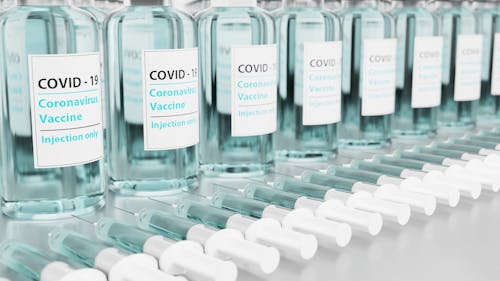Rutgers officials answer frequently asked questions regarding vaccination decision

University officials announced today that Rutgers will require all students to be fully vaccinated against the coronavirus disease (COVID-19) in order to return to campus in the fall, The Daily Targum previously reported. Here are some frequently asked questions regarding the vaccination requirement according to Rutgers’ COVID-19 website.
One of the first questions deals with whether faculty and staff will be required to get vaccinated. While the University stated it strongly encourages all employees to get the COVID-19 vaccine, it will not be required for faculty and staff at this time.
University spokesperson Dory Devlin said this decision has to do with recent Rutgers data that shows students have a 60 to 70 percent higher positivity rate compared to faculty and staff. Since students are typically highly mobile and interactive, she said this data is to be expected.
“Given that students are easily identified as a cohort creating transmission and infection, we chose to concentrate on them,” Devlin said. “Further, this is the community that goes back to their extended families and communities, and we believe that by concentrating on them we will make New Jersey safer.”
Additional questions have to do with Rutgers’ role in the vaccine distribution process.
Executive Vice President and Chief Operating Officer Antonio M. Calcado said the University has recently been approved as a point of dispensing for the vaccine and is currently awaiting their supply so they can begin administering the vaccine to the Rutgers community.
He said they are anticipating to receive their allotment of vaccines sometime between the end of April and beginning of May.
“We think that the timelines that have been set out are realistic timelines,” Calcado said. “We're looking at almost a five-month window here and we are, of course, absolutely ready to work with our students to make sure that it happens.”
In addition to students and faculty, he said Rutgers will also offer vaccines to surrounding community members in the future.
With some students who are under 18 years old entering Rutgers, another common question has to do with what vaccine they are eligible to receive given their age. The University said that while the Pfizer, Moderna and Johnson & Johnson vaccines may all be administered to individuals 18 years or older, only the Pfizer vaccine is currently approved for use on individuals aged 16 and 17.
Another topic of question revolves around whether international students can return to campus in the fall if they have received a vaccine not yet approved in the U.S.
Calcado said if international students are not yet vaccinated, the University will work with them to make sure they have enough time to get the vaccine while following safety guidelines. Though, if an international student has received an unapproved vaccine, he said the University will have to wait until there’s more information regarding the safety of revaccination using a vaccine that has been approved in the U.S.
Other questions involve whether fully vaccinated individuals will still have to wear face coverings, social distance and take part in the University’s COVID-19 testing program in the fall.
Rutgers stated that it will continue to require safety measures such as social distancing and the use of face masks until there is evidence from experts that these precautions are no longer necessary. Additionally, all students, faculty and staff who will be on campus in the fall will be required to participate in the testing program, despite their vaccination status.
Overall, Calcado said two major influences of this decision were President Joseph R. Biden Jr.’s recent announcement stating his goal of making all adults eligible for vaccination effective May 1, as well as New Jersey’s increased pace in vaccine administration, which is ahead of schedule. In the event that Biden does not end up lifting the restrictions on who can get vaccinated, Rutgers will not bypass the rules regarding eligibility.
Calcado said the University announced this decision now so individuals can take their time to make informed decisions about what they want to do in the fall. It is not currently known how many students are expected to request exemptions or what remote instruction options will look like in the fall, he said.
“Our responsibility, and we hold this dearly, is to make sure that our student body is safe,” Calcado said. “And one of the ways that we see that, and can help to ensure that, is by requiring that everyone is vaccinated, much like they get vaccinated for (measles, mumps and rubella), or (tuberculosis) or any of the other viruses and diseases that are out there.”



